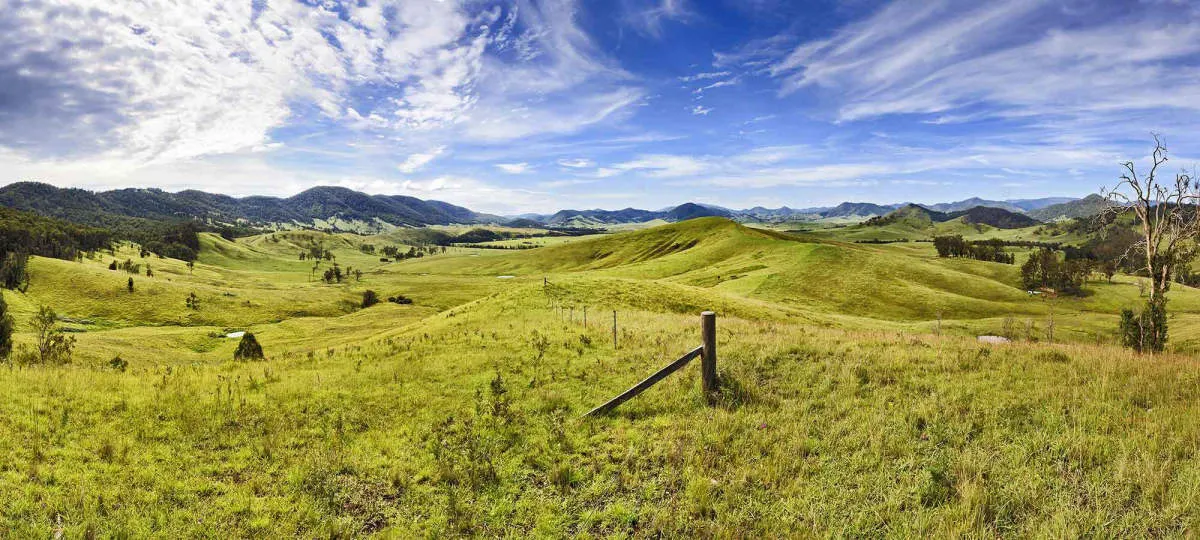Rural Property in Canada: Benefits and Considerations for Buyers
Rural property in Canada offers numerous benefits and considerations for potential buyers. From serene natural landscapes to spacious living spaces, owning rural property allows for a peaceful lifestyle away from the hustle and bustle of city living. However, buyers should consider factors such as infrastructure access and maintenance responsibilities before making a decision.
Exploring the Peace and Tranquility of Country Living
Living in the countryside offers a unique and fulfilling experience for those seeking peace and tranquility away from the hustle and bustle of city life. This article will delve into the benefits and considerations for buyers interested in rural property in Canada.
1. Serene Surroundings
One of the main reasons why people choose to live in the countryside is to enjoy the serenity of nature. Imagine waking up to the sounds of birds chirping and breathing in the fresh, clean air. The picturesque landscapes and wide-open spaces provide a peaceful environment that is perfect for relaxation and rejuvenation.
2. Connection with Nature
Country living allows you to establish a deeper connection with nature. You can explore hiking trails, go fishing in nearby streams, or simply take leisurely walks amidst beautiful scenery. The abundance of wildlife and greenery offers a chance to immerse yourself in the wonders of the natural world.
3. Community and Privacy
Rural areas often have tight-knit communities where neighbors support and look out for one another. It’s a place where people genuinely care about each other, fostering a strong sense of belonging and community spirit. At the same time, country living also provides a sense of privacy, with more space between properties and fewer disturbances from noise and crowds.
4. Sustainable Living
Living in the countryside offers an opportunity for a more sustainable lifestyle. You can grow your own organic produce, raise livestock, or even have renewable energy sources like solar panels or wind turbines. Country living promotes self-sufficiency, allowing you to reduce your carbon footprint and have a positive impact on the environment.
5. Considerations for Buyers
Before making the decision to buy rural property in Canada, there are a few important considerations to keep in mind:
- Location: Research the area thoroughly to ensure it suits your needs in terms of amenities, proximity to services, and climate.
- Accessibility: Consider the distance to major cities or towns, as well as the availability of public transportation in case of commuting needs.
- Infrastructure: Check the availability of essential services such as water, electricity, and internet connectivity.
- Property Size and Zoning: Determine if the property size is suitable for your plans, and familiarize yourself with zoning regulations and restrictions.
- Maintenance and Upkeep: Understand the responsibilities and costs associated with maintaining a rural property, such as landscaping, snow removal, and septic systems.
Final Thoughts
If you are looking for a peaceful lifestyle and a close connection with nature, rural property in Canada can be an excellent choice. However, it’s important to carefully consider the benefits and factors involved to ensure a positive and fulfilling experience in your country living adventure.
Evaluating Access to Services and Infrastructure

When looking to purchase rural property in Canada, it is crucial to evaluate the access to services and infrastructure in the area. Although the appeal of a peaceful countryside setting may be enticing, buyers need to consider the benefits and potential limitations that come with living in a rural location.
Proximity to Essential Services
One of the primary aspects to assess is the proximity to essential services such as groceries, healthcare, schools, and emergency facilities. Living in a rural area often means being farther from these services compared to urban dwellings. Buyers should consider the distance they are willing to travel and the availability of quality services within a reasonable range.
Infrastructure and Amenities
Another key factor is the presence and condition of infrastructure and amenities in the area. This includes access to roads, public transportation, electricity, water, and internet connectivity. Buyers should research the reliability and speed of these utilities as it can impact their daily lives and any future development plans for the property.
Community and Social Connections
Rural living often offers a close-knit community and a strong sense of belonging. However, it is important to consider whether the available social connections align with the buyer’s interests and needs. Buyers should also assess the availability of recreational activities, community events, and cultural amenities in the area.
Environmental Considerations
Rural properties in Canada often provide access to stunning natural landscapes and a healthier living environment. However, it is necessary to evaluate any potential environmental factors that may affect the property. These can include flood zones, forest fire risks, and the proximity to industrial or agricultural activities that might impact air and water quality.
Property Resale Value
Buyers should also consider the resale value of the rural property. Although the demand for rural properties in Canada is generally strong, certain factors like access to services, infrastructure, and amenities can influence its future marketability. Assessing the potential for property appreciation is essential, especially if the buyer intends to sell in the future.
Conclusion
Before purchasing rural property in Canada, it is critical to evaluate the access to services and infrastructure. This assessment ensures that buyers can make an informed decision based on their needs, lifestyle, and the future value of the property. Conducting thorough research and seeking professional advice can help mitigate any potential challenges and maximize the benefits of rural living.
Understanding the Unique Challenges of Rural Property Ownership
Rural property ownership in Canada offers a range of benefits and considerations for potential buyers. While the allure of peaceful surroundings and wide-open spaces can be enticing, it is important to understand the unique challenges that come with owning rural property.
1. Maintenance and Infrastructure
Rural properties often require more maintenance compared to urban properties. The upkeep of large plots of land, including maintaining driveways, septic systems, wells, and outbuildings, can be time-consuming and costly. It is essential to factor in ongoing maintenance costs when budgeting for a rural property.
2. Accessibility and Services
One of the primary considerations for rural property owners is access to essential services. Compared to urban areas, rural properties may have limited access to amenities such as grocery stores, healthcare facilities, and schools. It is crucial to consider the distance and time required to access these services.
3. Internet and Communication
In rural areas, access to high-speed internet and reliable communication networks can be challenging. Buyers should investigate the availability of internet providers and cellular network coverage in the specific rural area to ensure connectivity for work, education, and leisure purposes.
4. Wildlife and Environmental Factors
Rural properties often coexist with wildlife and natural landscapes. While this offers opportunities for nature enthusiasts, it also presents challenges. Buyers should be aware of potential wildlife encounters, restrictions on land usage due to conservation efforts, and seasonal changes that may affect property accessibility.
5. Agricultural Zoning and Regulations
Many rural properties in Canada are zoned for agricultural use, which may restrict certain activities or require compliance with specific regulations. It is crucial for potential buyers to understand these zoning rules and regulations to ensure their intended use of the property aligns with local laws.
While rural property ownership in Canada can offer a rewarding lifestyle, it is important to consider the unique challenges that come with it. By understanding and planning for these challenges, prospective buyers can make informed decisions and fully enjoy the benefits of owning rural property.
Conclusion
Buying rural property in Canada offers numerous benefits, such as affordability, serene surroundings, and potential for investment. However, buyers should carefully consider factors like accessibility, infrastructure, and long-term maintenance before making a decision.

Posting Komentar untuk "Rural Property in Canada: Benefits and Considerations for Buyers"
Gambar ataupun video yang ada di situs ini terkadang berasal dari berbagai sumber media lain. Hak Cipta sepenuhnya dipegang oleh sumber tersebut.